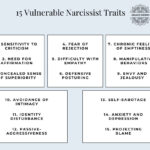Narcissist and Empath: Unraveling the Empath and Narcissist Dynamics in Relationships

Narcissist and Empath: Unraveling the Empath and Narcissist Dynamics in Relationships
A narcissist and an empath form a paradoxically fitting pair with complex relationship dynamics. An empath and narcissist relationship is usually a turbulent one, yet it can last for years.
What binds an empath and narcissist relationship?
Let’s start by understanding what is an empath and a narcissist. In this blog post we will explore empath VS narcissist personality traits. Then we can see why and how these two fit together.
It’s good to note that the toxic relationship between an empath and narcissist has detrimental effects on the empath. To break free from this destructive cycle, it is essential to cultivate understanding, increase awareness, and employ robust healing strategies.
If you’re struggling to heal from narcissistic abuse, I warmly welcome you to my Narcissistic Abuse Recovery Program. It’s an easy self-paced online course which you can do at your own pace. My signature program combines scientific and spiritual tools for holistic healing of the body, mind, and spirit.
What is an empath?
An empath is an individual who possesses a heightened ability to understand and experience the emotions, feelings, and energy of others. They have an innate sensitivity that allows them to pick up on the emotional states of those around them.
Empaths have a deep capacity for empathy, compassion, and intuition. These qualities enable them to connect with others on a profound level. They can sense the joy, pain, and struggles of people, sometimes even absorbing these emotions as if they were their own.
This unique ability to tune into others’ emotional landscapes can be both a gift and a challenge. To protect themselves, empaths must learn to navigate their own emotional well-being while offering support to others.
What is a narcissist?
A narcissist is an individual characterized by an excessive and exaggerated sense of self-importance, a constant need for admiration, and a lack of empathy for others. They have an inflated view of their own abilities, achievements, and superiority, often seeking validation and attention from those around them. These are a few of the 12 traits of a narcissist.
Narcissists tend to display a sense of entitlement, exploiting others to fulfill their own desires and manipulating situations to maintain control and dominance. They have difficulty recognizing and respecting the boundaries and emotions of others. Their primary focus is on fulfilling their own needs and maintaining their self-image.
Their behavior can be manipulative, self-centered, and lacking in genuine empathy, often causing distress and harm to others.
Related: Narcissist checklist
Empath vs Narcissist – Understanding the Key Differences
Empaths and narcissists represent two contrasting ends of the personality spectrum. While empaths possess a heightened ability to understand and empathize with others, narcissists exhibit self-centeredness and a lack of empathy.
Empaths are highly sensitive individuals who can intuitively sense and absorb the emotions of those around them. They often put others’ needs before their own.
In contrast, narcissists prioritize their own desires, seek constant admiration, and lack genuine concern for others’ feelings.
The key differences lie in their approach to relationships, emotional awareness, and motivations. Recognizing and understanding these distinctions can help navigate interactions and establish healthier connections.
Here’s a recap of empath vs narcissist key differences
- Empaths are highly sensitive and empathetic, while narcissists display self-centeredness.
- Empaths intuitively absorb the emotions of others, while narcissists prioritize their own needs.
- Empaths prioritize the well-being of others, while narcissists prioritize their own desires.
- Empaths seek deep emotional connections, while narcissists seek admiration and validation.
- Empaths exhibit emotional awareness, while narcissists lack self-awareness and empathy.
- Empaths are driven by compassion, while narcissists are driven by self-interest.
- Empaths often put others’ needs before their own, while narcissists prioritize themselves.
Related: Guided meditation for healing from narcissistic abuse
Narcissist vs Empath – Understanding Key Similarities
While narcissists and empaths are often viewed as contrasting personalities, there are notable similarities that contribute to their dynamic connection. One such commonality is the presence of inner child wounds.
Both narcissists and empaths carry unresolved emotional wounds stemming from past experiences of rejection or neglect. These wounds create a fear of abandonment and a deep longing to be seen, loved, and accepted for who they truly are.
Consequently, both personalities develop a craving for attention and validation, though their expressions differ. This shared woundedness and unmet needs can create a puzzling fit between narcissists and empaths, as they unconsciously align and interact in ways that complement each other’s deficient needs.
Here’s a recap of narcissist vs empath key similarities
- Both narcissists and empaths carry inner child wounds rooted in past rejection or neglect.
- They share a fear of abandonment and a strong desire for attention, validation, and acceptance.
- Their woundedness drives their behaviors and interactions, though manifested differently.
- The complementary nature of their needs and deficiencies often leads to a puzzling connection between narcissists and empaths.
Understanding these shared characteristics can shed light on the complex dynamics between these personality types.
Related: Things Covert Narcissists Say
Why are empaths attracted to narcissists?
The attraction between a narcissist and an empath can be perplexing but rooted in certain psychological dynamics. Empaths, with their natural inclination towards compassion and healing, are drawn to those in need of support, including narcissists.
Empaths have a genuine desire to help and fix others, often seeing the potential for goodness beneath the narcissist’s facade.
Additionally, empaths have a tendency to prioritize others’ needs over their own, making them susceptible to the manipulation and charm of narcissists.
Furthermore, empaths may have unresolved wounds and low self-esteem, which can make them more susceptible to the intense attention and love bombing that narcissists often exhibit during the initial stages of a relationship.
However, it’s essential for empaths to recognize and address these patterns to break free from the harmful cycle of narcissistic attraction and establish healthier, balanced connections.
Related: How Does a Narcissist React When They Can’t Control You?
Why do empaths attract narcissists?
The empath and the narcissist dynamic can be attributed to a combination of factors. Firstly, empaths’ compassionate nature and natural inclination to help others make them attractive targets for narcissists seeking validation and admiration.
Empaths’ empathetic qualities can also lead them to see the potential for goodness and change within the narcissist, overlooking red flags.
Moreover, empaths’ tendency to prioritize others’ needs over their own can make them susceptible to manipulation and control. Wounded empaths may carry unresolved wounds and have lower self-esteem. This creates a subconscious attraction to the intense attention and love-bombing that narcissists often employ at the beginning of a relationship.
Related: Signs You’re Healing From Narcissistic Abuse
Does the narcissist miss the empath?
When the toxic relationship between an empath and narcissist comes to an end, both parties end up craving each other like a drug. But does the narcissist truly miss the empath?
While it may appear so, it’s essential to understand the underlying motivations. The narcissist’s longing for the empath is not rooted in genuine love or emotional connection.
Rather, they miss the empath’s presence because they need them to serve their insatiable need for narcissistic supply. The empath, with their empathetic and nurturing nature, becomes a prime source of validation, attention, and admiration for the narcissist.
Without the empath, the narcissist’s ego and self-image suffer. Hence, the narcissist’s “missing” is driven by their dependency on the empath for fulfilling their own egoic needs, rather than a true emotional longing. This concept is called the narcissist empath codependency.
It is crucial for empaths to recognize this dynamic and prioritize their own well-being, steering clear of the cycle of narcissistic manipulation and abuse.
Related: Codependency Triangle In Narcissistic Relationships
Can a narcissist fall in love with an empath?
The complexities of the narcissist-empath dynamic can make it challenging to define love in conventional terms. In the early stages of the relationship, it may seem as though the narcissist is obsessed with the empath. The empath narcissist relationship generally starts with an intense initial phase of infatuation, idealization, and love-bombing.
However, it’s important to understand that this intense attachment is not rooted in genuine love. Instead, it stems from the narcissist’s self-interest and the fulfillment of their own needs.
The empath’s empathetic and nurturing qualities serve as a source of validation and admiration for the narcissist, creating a cycle of dependence and manipulation. The narcissist’s perception of love revolves around their own self-centered desires, taking advantage of the empath’s emotional availability.
How do empaths protect themselves from narcissists?
Empaths can take proactive steps to protect themselves from the toxic influence of narcissists in relationships. Firstly, setting and maintaining strong boundaries is crucial.
Empaths need to establish clear limits on what they are willing to tolerate and ensure that their needs are respected. It’s essential for empaths to prioritize self-care and engage in regular emotional and energetic cleansing practices, such as meditation, journaling, or seeking therapy.
Developing a strong sense of self-worth and cultivating a healthy self-esteem can also help empaths resist the manipulation tactics of narcissists. Seeking support from trusted friends, family, or support groups can provide validation and guidance when healing from narcissistic abuse.
Ultimately, by recognizing and valuing their own worth, empaths can create healthier relationships and shield themselves from the negative impact of narcissists.
Can an empath and narcissist work?
While it is possible for a narcissist and empath relationship to last for many years, it often comes at a great cost to the empath. The empath, driven by their innate compassion and desire to please, may go to great lengths to fulfill the narcissist’s needs.
They may believe that if they try hard enough or give enough, they can change the narcissist or earn their love and validation. However, the harsh reality is that no matter how much the empath sacrifices or does, it will never be enough to satisfy the insatiable demands of the narcissist.
In this dynamic, the empath risks losing their sense of self, their sanity, and becoming subject to profound physical and psychological trauma. The empath’s unwavering dedication to the relationship, combined with the narcissist’s manipulation and abuse, creates a nightmarish cycle of pain and false love.
The empath may continue to hold onto false hope that the narcissist will change, desperately seeking validation and love that may never be genuinely reciprocated.
It is essential for the empath to recognize the unhealthy nature of the relationship and the detrimental effects it has on their well-being. Letting go of hope and breaking free from the cycle of manipulation is the first step towards healing and reclaiming one’s life.
By prioritizing self-care, setting boundaries, and seeking support, empaths can liberate themselves from the toxic grip of the narcissist and embark on a journey of personal growth and genuine, healthy connections.
Related: How to Deal with a Narcissist
Navigating the Complex Dance of the Narcissist and Empath
The empath and narcissist attraction is undoubtedly intricate and intense. When an empath meets a narcissist and falls in love, they often find themselves feeling powerless in the face of the narcissist’s dominance. The power dynamics within the relationship can feel imbalanced, with the narcissist seemingly holding all the power.
In reality, it is the empath who holds the advantage in this intricate dance. The empath feels like they need the narcissist, however, the narcissist desperately relies on the empath for narcissistic supply.
Despite both parties carrying wounds, the empath possesses the capacity for self-reflection and personal growth. With bravery and dedication, empaths can embark on a healing journey that empowers them to harness their unique gifts, skills, and qualities.
By prioritizing their own well-being, empaths can learn to thrive and support others in healthier ways. Empaths can begin their journey of self-improvement and healing even while still in the relationship. As they start doing the inner work and getting in touch with their true Self, they gradually start reclaiming their power and establishing healthier dynamics.
By prioritizing self-care and self-love, empaths can embark on a transformative journey to reclaim their power and create a brighter future. Seeking narcissistic abuse therapy, or professional support, engaging in healing practices, and connecting with supportive communities can provide the necessary tools and guidance.
Remember, you don’t have to navigate this alone. Take the first step towards healing and begin the journey towards a fulfilling and empowered life.
My Related Services:
–Narcissistic Abuse Recovery Program: Join a structured program that provides tools, resources, and guidance to help you navigate and heal from the impact of narcissistic abuse.
–Email Advice: Get guidance, insights, and support directly to your inbox.
FAQs
Empaths are drawn to narcissists due to their compassionate nature and desire to help others. They may see the potential for goodness in the narcissist and hope to change them, overlooking warning signs.
While a narcissist may develop intense attachment to an empath, it is not rooted in genuine love. Their connection is driven by the narcissist’s need for validation and admiration, exploiting the empath’s empathetic nature.
The narcissist may appear to miss the empath, but it is not out of love. They miss the empath’s presence because they need them to fulfill their own egoic needs and serve as a source of narcissistic supply.
No, empaths and narcissists are distinct personality types. Empaths are highly sensitive, empathetic, and compassionate individuals, while narcissists display self-centeredness, lack of empathy, and a need for admiration.
Empaths’ empathetic and nurturing qualities make them appealing to narcissists. The empath’s selfless nature and willingness to give often align with the narcissist’s sense of entitlement and grandiosity.
A healthy and balanced relationship between an empath and narcissist is challenging due to their contrasting nature. While it may last, the empath risks losing oneself and experiencing emotional and psychological trauma in the process. Prioritizing self-care and setting boundaries is crucial.
Additional Resources
Do Narcissists Cry?
Divorcing a Narcissist
Narcissist Red Flags
Why a Narcissist Won’t Divorce You
Weird Things Covert Narcissists Do






